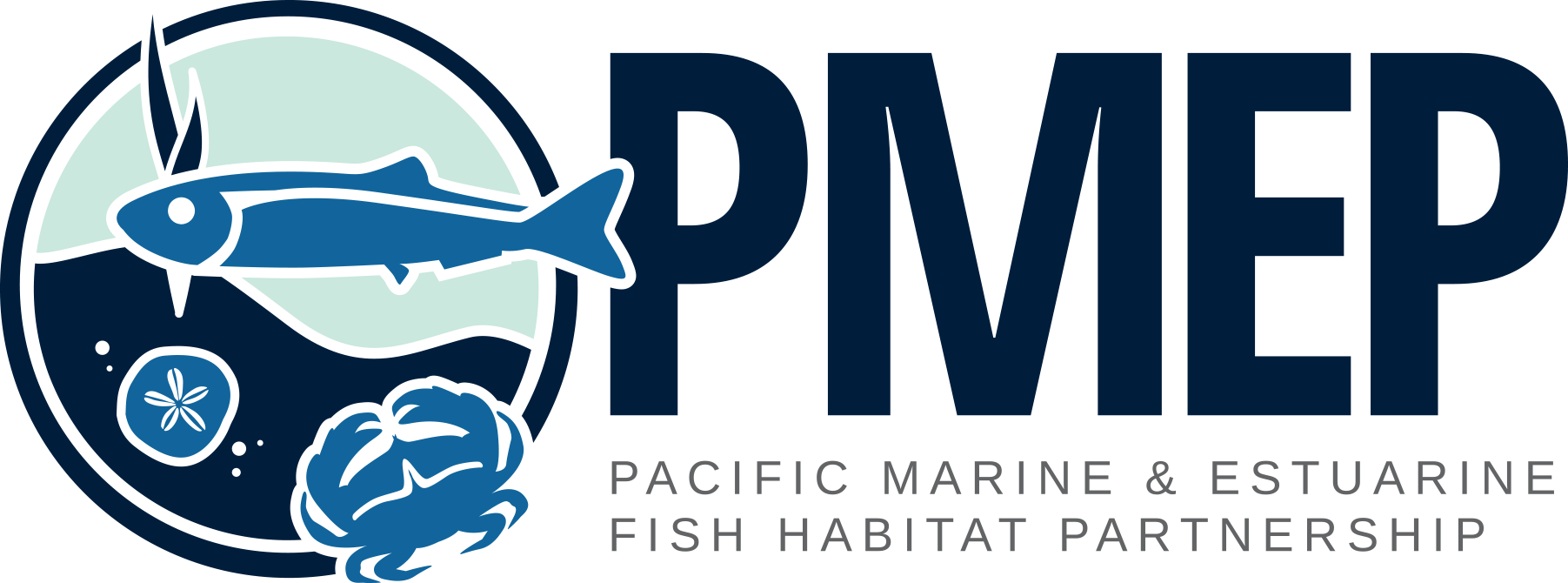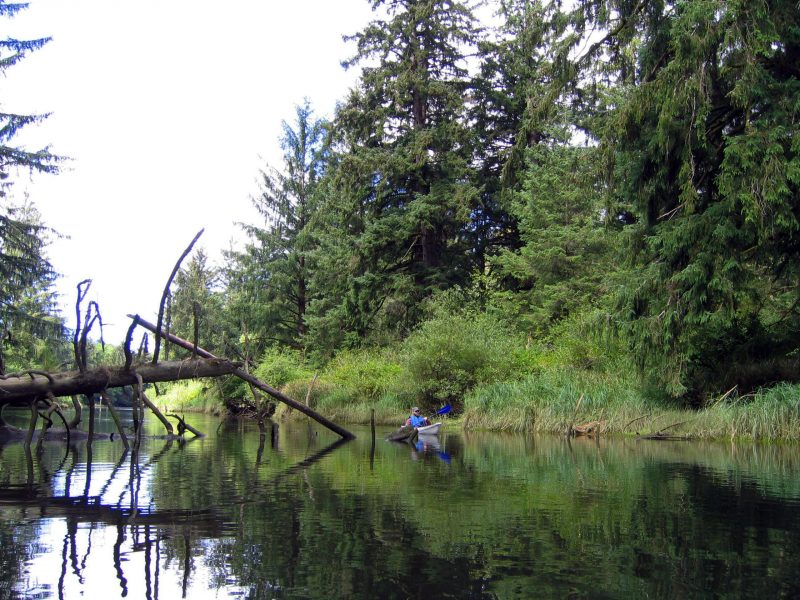PMEP is thrilled to announce the completion of our latest assessment report Restoring Tidal Swamps in the U.S. Pacific Northwest: Information for Restoration Practitioners. Tidal swamps were historically common in the Pacific Northwest but are now rare, having been lost at greater rates than other types of tidal wetlands in many areas. This report provides information on early efforts in the emerging field of tidal swamp restoration, including documentation of 14 active tidal swamp restoration projects in the Pacific Northwest. The report provides an overview of the ecological importance of tidal swamps, the importance of restoring these valuable habitats, and unique challenges that practitioners should consider when approaching their restoration. The report includes information on reference site selection, elevated platforms, reed canarygrass control, large woody debris and channel design, beaver monitoring, and effectiveness monitoring. Find the full report HERE.
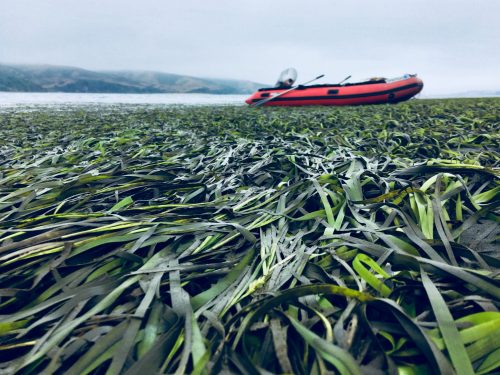
- March 27, 2024
- Joan Drinkwin
- Publication
- 0 comments
In 2020, PMEP commissioned a report Eelgrass Restoratin on the U.S. West Coast: A comprehensive Assessment fo Restoration Techniques and Their Outcomes. The report synthesize eelgrass restoration project successes along the U.S. West Coast and identifies best practices for eelgrass restoration and mitigation. PMEP created a webpage summarizing the synthesis findings and providing guidance for eelgrass restoration practitioners. Drs. Melissa Ward and Kathryn Behishti conducted the reveiw and recently published their findings. Their paper,”Lessons learned from over thirty years of eelgrass retoration on the U.S. west coast” was published in Ecosphere and can be found HERE. The project was supported by Pew Charitable Trusts.
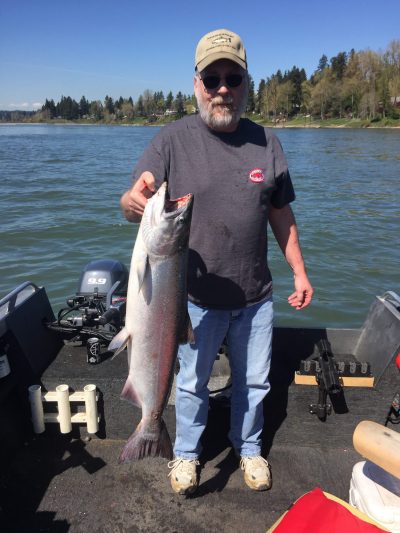
- January 9, 2024
- Joan Drinkwin
- Funding
- 0 comments
The Pacific Marine and Estuarine Fish Habitat Partnership (PMEP) is partnering with NOAA to facilitate proposals for an informal funding opportunity in FY24 for Coastal Fish Habitat Partnership projects that support habitat conservation or restoration and engagement with the recreational fishing community. The total funding available is approximately $150,000.
We are looking for projects that focus on habitat restoration or protection for recreationally important saltwater or diadromous species AND actively engage recreational fishing partners in habitat protection or restoration. This may include, but is not limited to:
a. Direct participation of recreational anglers in habitat projects, including research,
monitoring, and on-the-ground restoration
b. Education and outreach with, by, or for anglers on habitat conservation topics
c. Hosting of an event focused on habitat and recreational fishing opportunity that
engages the recreational fishing community and partners
Sponsors must submit their proposals to PMEP by March 15, 2024 so PMEP can determine its support for the project. Then the project sponsor must submit a completed proposal to NOAA by April 15, 2024.
For the full Request for Proposals and application instructions, go HERE.
Subscribe to our newsletter to ensure you receive announcements of our future RFPs. Subscribe HERE.
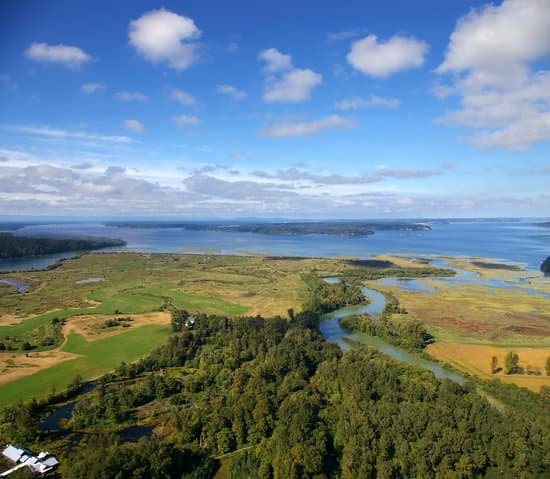
- December 8, 2023
- Joan Drinkwin
- Events
- 0 comments
March 12, 2024
Register HERE.
Exploring the design, methods, and monitoring of estuary restoration along the U.S. West Coast in the context of a changing climate.
This one day virtual symposium will bring together experts in the field of estuary restoration along the U.S. West Coast to explore effective estuary restoration topics.
This is the first of three annual symposiums that will explore a wide range of pressing topics in estuary restoration including:
- Design considerations and restoration methods
- Climate change and estuary restoration
- Monitoring estuary restoration
- Documenting estuary restoration
The symposiums are designed to support estuary restoration practitioners and will include opportunities to share techniques, ask questions, and build a community of practice.
Registration is now open! Register HERE.
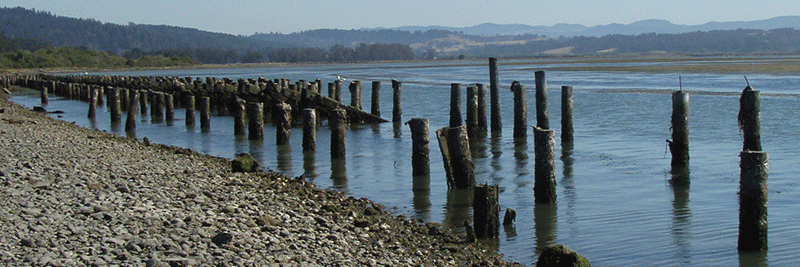
- October 8, 2023
- Joan Drinkwin
- Announcement, Funding
- 0 comments
The Pacific Marine and Estuarine Fish Habitat Partnership (PMEP) requests proposals for projects that restore, enhance, or protect estuarine and nearshore marine fish habitat conservation and restoration along the West Coast. Restoration, acquisition, and assessment projects are eligible. PMEP will award an estimated $250,000-$350,000 in FY2025 for projects that advance its mission. In an effort to fund a diverse portfolio of projects, strong project proposals that request less than $100,000 are preferred. However, proposals of particular merit may be funded at a higher level, at PMEP’s discretion.
The project proposals are due by 5:00PM Friday, December 1, 2023. Project sponsors should assume that funding will be received in Summer of 2025.
Proposals must be submitted online through the Jotform platform.
For more information, access the full Request for Proposals and application instructions HERE
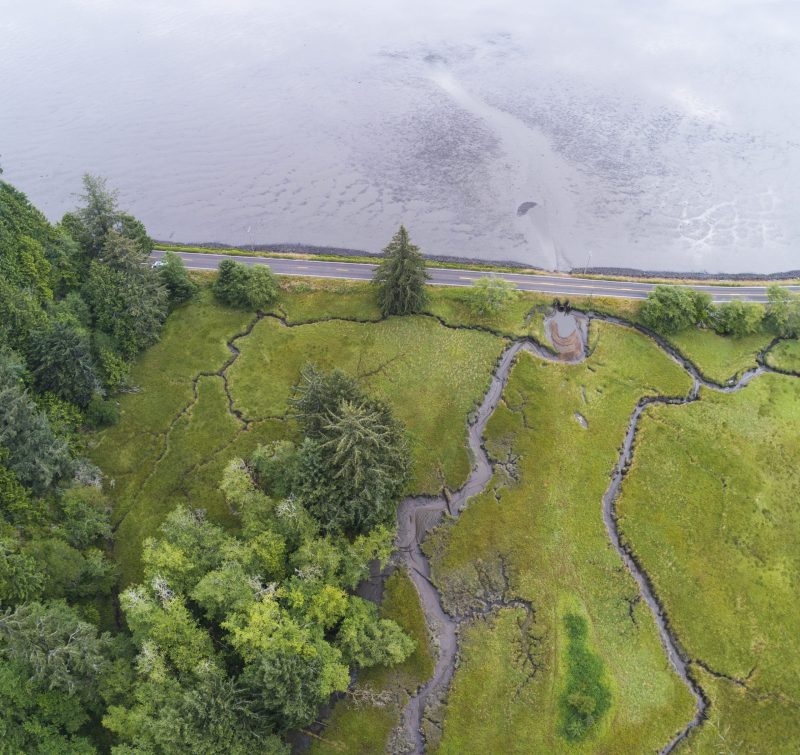
- August 8, 2023
- Joan Drinkwin
- Announcement, Funding
- 0 comments
Flower Pot Creek is a tributary flowing directly into Tillamook Bay. It crosses Bayocean Road, directly before its confluence with Tillamook Bay, at an old, deteriorating, and undersized culvert. This culvert acts as a physical barrier to adequate tidal exchange and a velocity barrier to fish passage during certain flows. Replacing this undersized culvert with a properly sized bridge will increase tidal exchange in the wetland and eliminate a fish barrier. This wetland supports spawning and rearing for Oregon Coast ESU coho salmon, Chinook salmon and steelhead. The Flower Pot Creek Fish Passage and Tidal Reconnection Project, lead by Trout Unlimited, will improve connectivity to approximately 1.4 stream miles and 14.6 acres of tidally influenced wetland. We will replace an undersized, deteriorating culvert with a bridge and streambed simulation. This will correct a fish passage barrier and allow for natural tidal and steam functions to occur. This culvert is highly ranked on the Salmon SuperHwy priority list and the adjacent wetlands are ranked medium-high priority in the Tidal Wetlands Prioritization for Tillamook Bay.
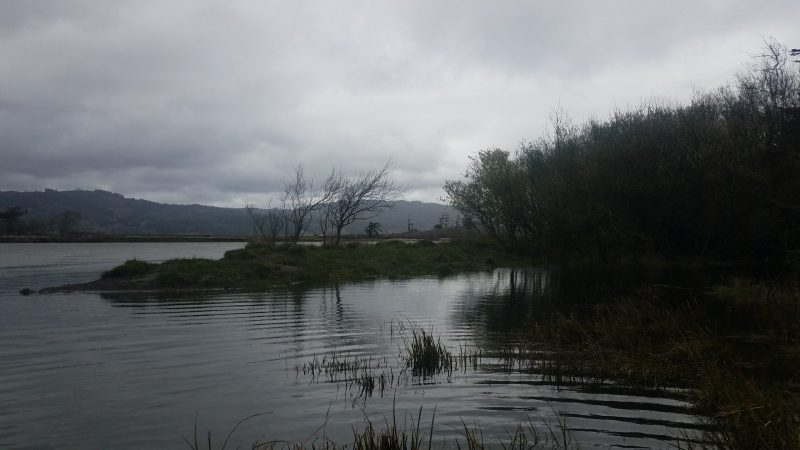
- July 26, 2023
- Joan Drinkwin
- Announcement, Funding
- 0 comments
The Smith River Alliance is leading this project, which will enhance a naturally occurring backwater feature on the south bank of the Smith River estuary, benefitting Southern Oregon and Northern Coastal California ESU Coho salmon, SONCC Chinook salmon, and Klamath Mountain Province Steelhead. The project will increase channel complexity along the mainstem Smith River and addresses impaired estuary function by increasing the quantity and quality of off-channel slow water rearing habitat and benefit up to 8,000 outmigrating Coho salmon smolts. Tidally influenced backwater habitat is extremely beneficial but rare in the Smith River estuary and this project will improve connectivity to this limited habitat. The project will enhance the hydrologic connection to 660 lineal feet of off-channel habitat, and increase the duration and range of flows that migrating and rearing juvenile Coho salmon can access the off-channel habitat feature by 94%. Two large wood structures containing 14 logs will be installed at the entrance and up to 13 single log structures will be installed throughout the backwater. The riparian area will be planted with native species including: 1,386 wetland plants, 114 herbaceous understory plants, 78 shrubs, and 120 trees. Livestock exclusion fencing will be installed along 1,800 feet to permanently exclude cattle from 51 acres of the Smith River estuary.
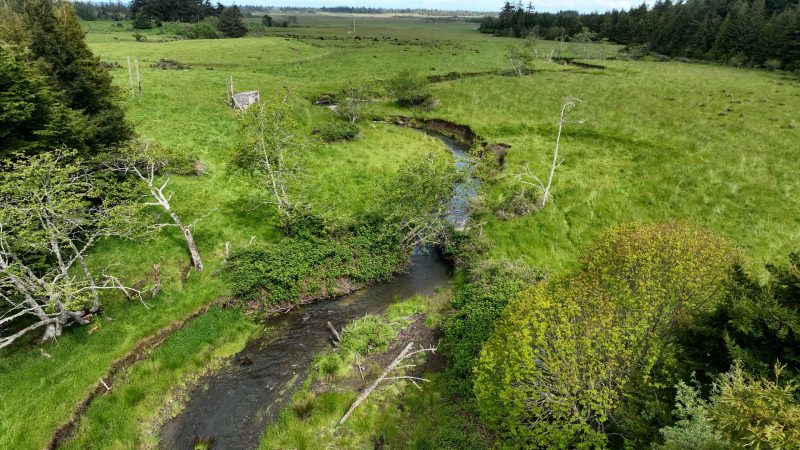
- July 4, 2023
- Joan Drinkwin
- Announcement, Funding
- 0 comments
The Curry Soil and Water Conservation District will restore channel processes, floodplain connectivity, instream and off-channel habitat, and 19 acres of native riparian forest on 2,500 feet of Morton Creek, which at present, is deeply incised and severely impacted by grazing. Restoration will enhance rearing, spawning, and migration habitat for coho salmon and steelhead; as well as Pacific lamprey. Restoration will improve water quality and reduce sedimentation in ~470 acres of freshwater wetland adjacent to the New River estuary. Project will also install riparian fencing and off-channel water to facilitate livestock grazing outside the stream corridor. The project goals are to improve water quality and instream habitat; restore floodplain connectivity and dynamic fluvial processes; enhance fish migration between upstream spawning and downstream rearing habitat; stabilize chronic bank erosion; and prevent pollutant loading to downstream fresh water wetlands and the New River estuary. The project involves construction of 2,500 feet of stream channel, 5.4 acres of floodplain topography, 800 feet of off-channel aquatic habitat, 20-30 instream log structures, 2 vehicle bridges, 2,500 feet of livestock exclusion fence, and an off-stream livestock water system; and the project will plant and maintain 21,000 seedlings, to restore 19 acres of native riparian forest.
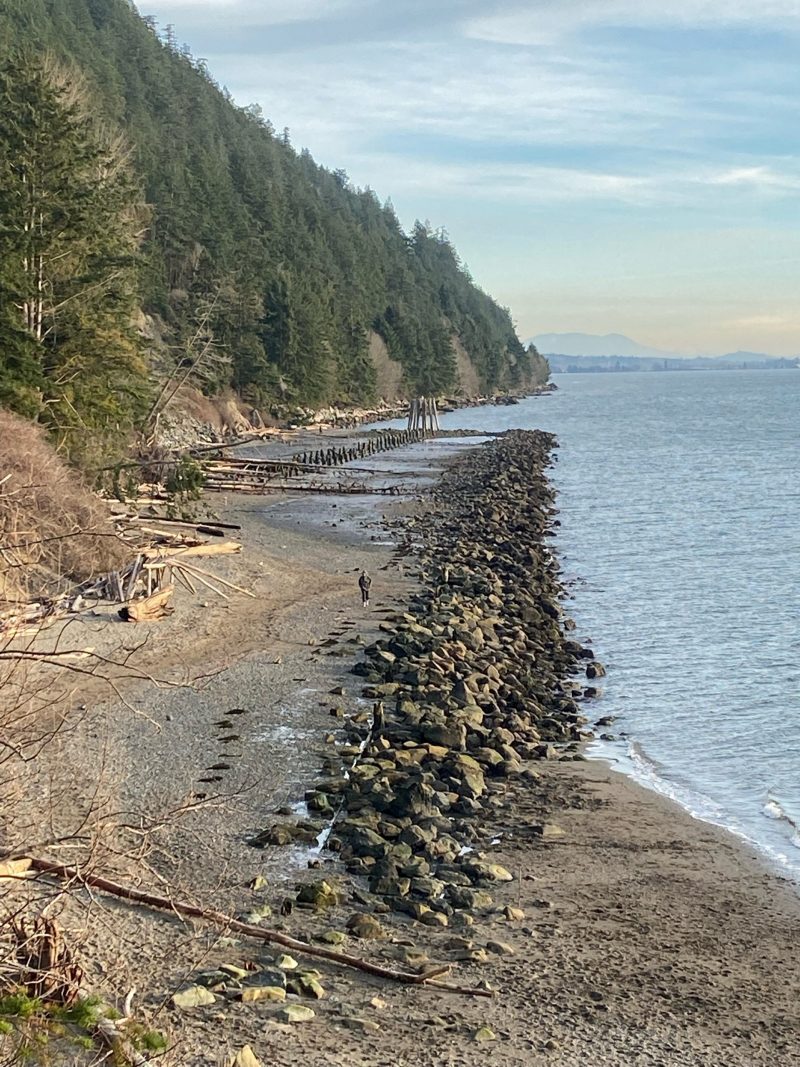
- June 20, 2023
- Joan Drinkwin
- Announcement, Funding
- 0 comments
The Clayton Beach Nearshore Restoration Project project will remove 1,200LF of shore armor and pilings to improve sediment transport processes and allow for landward translation of eelgrass beds and nearshore habitats to adapt to sea level rise. The project will restore over 9 acres of beach, backwater, and riparian habitat to improve spawning habitat for surf smelt and Pacific sand lance, improve public access to Clayton Beach, and provide interpretation of cultural and historical uses and ecosystem dynamics. Sponsor Northwest Straits Marine Conservation Foundation seeks to address prey species availability through restoration of coastal processes and forage fish spawning habitats. Failed and unnecessary armor is burying spawning habitat of surf smelt and sand lance, two critical prey species for salmonids and marine birds. Estimates of sea-level rise suggest that on beaches with armored shoreline, substantial forage fish spawning habitat could be lost in the next few decades and most might be lost by 2100.
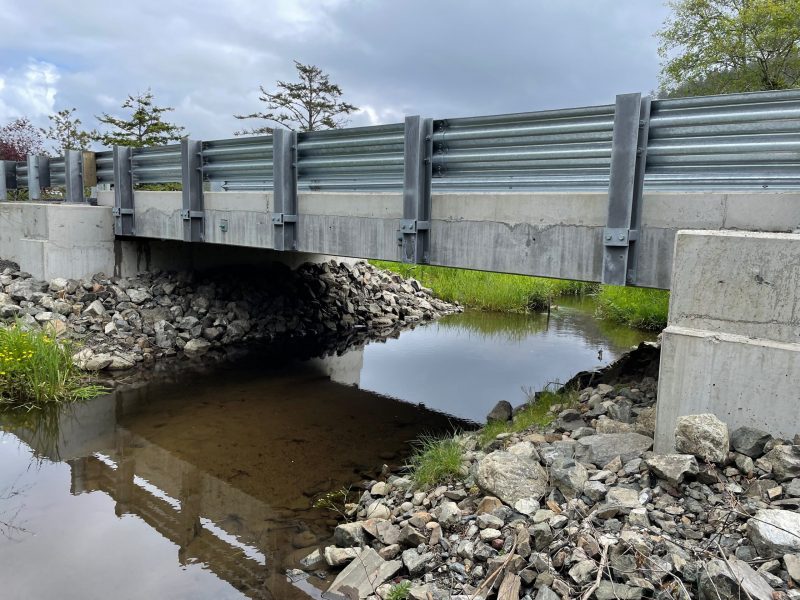
- March 26, 2023
- Joan Drinkwin
- Announcement
- 0 comments
The Pacific Marine & Estuarine Fish Habitat Partnership (PMEP) and the Nestucca, Neskowin & Sand Lake Watersheds Council are pleased to announce that the Neskowin Fish Passage Improvement Project has been named to the National Fish Habitat Partnership 2022 Waters to Watch list. The Waters to Watch Program annually highlights ten outstanding fish habitat restoration projects nationwide to focus attention on rivers, streams and shores that will be cleaner and healthier habitats for the many fish and wildlife species and people who call these areas home.
The Neskowin Fish Passage Improvement Project project included a strong partnership with the Tillamook County Public Works Department and restored fish passage within the Neskowin Estuary-Wetland complex benefiting multiple species including ESA listed Coho salmon at the same time providing emergency egress to the local community during flooding events. The project increased access to 250 acres of riverine estuary, tidal scrub/shrub and tidal forest wetland rearing habitat and 5 miles of spawning habitat for Coho salmon, Chinook salmon, Chum salmon, Steelhead trout, Pacific lamprey, and Cutthroat trout. The project replaced three undersized culverts and two tidegates with two 32’ bridges sized to meet federal and state fish passage requirements.
